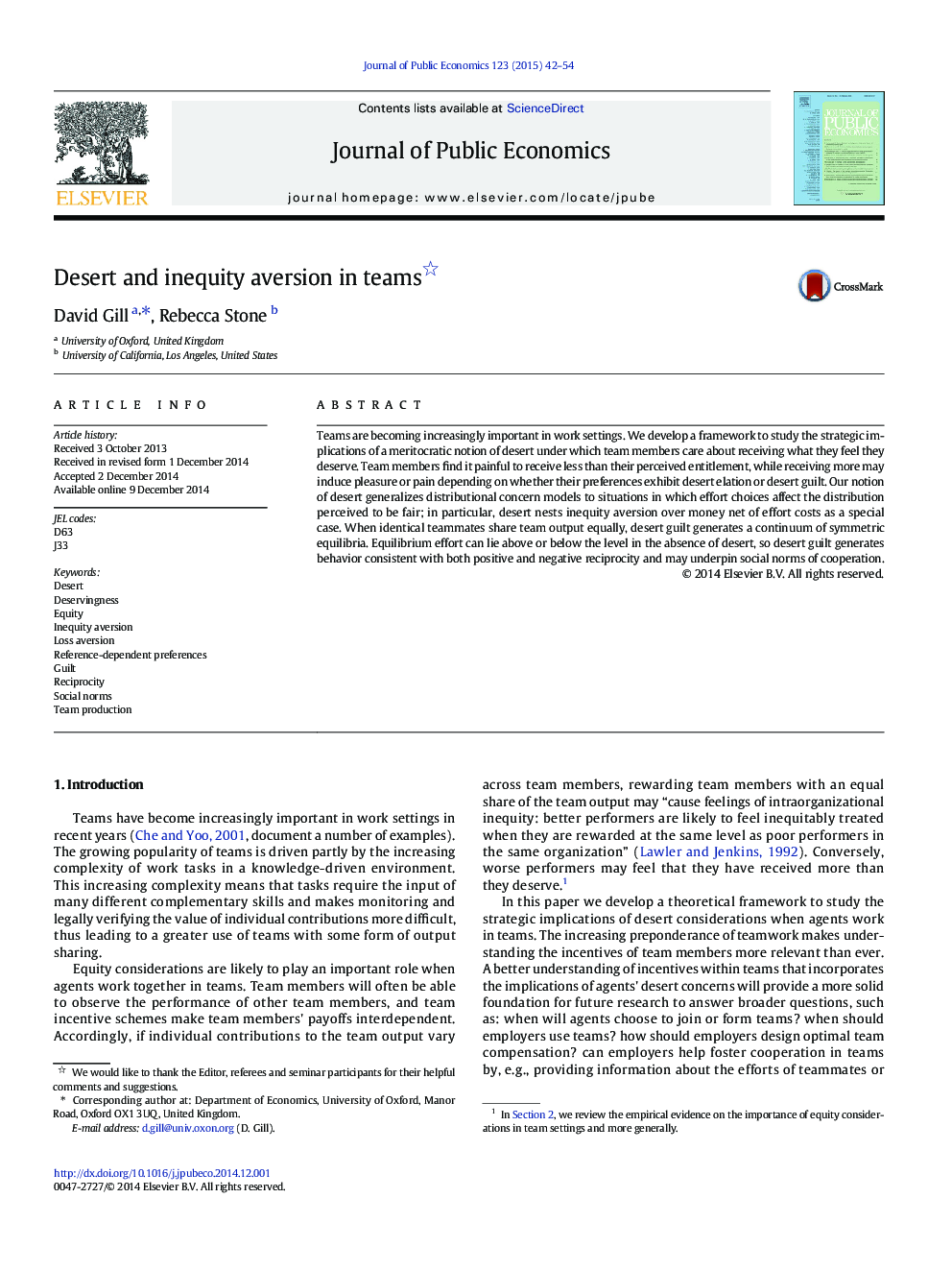| Article ID | Journal | Published Year | Pages | File Type |
|---|---|---|---|---|
| 969670 | Journal of Public Economics | 2015 | 13 Pages |
Abstract
Teams are becoming increasingly important in work settings. We develop a framework to study the strategic implications of a meritocratic notion of desert under which team members care about receiving what they feel they deserve. Team members find it painful to receive less than their perceived entitlement, while receiving more may induce pleasure or pain depending on whether their preferences exhibit desert elation or desert guilt. Our notion of desert generalizes distributional concern models to situations in which effort choices affect the distribution perceived to be fair; in particular, desert nests inequity aversion over money net of effort costs as a special case. When identical teammates share team output equally, desert guilt generates a continuum of symmetric equilibria. Equilibrium effort can lie above or below the level in the absence of desert, so desert guilt generates behavior consistent with both positive and negative reciprocity and may underpin social norms of cooperation.
Keywords
Related Topics
Social Sciences and Humanities
Economics, Econometrics and Finance
Economics and Econometrics
Authors
David Gill, Rebecca Stone,
